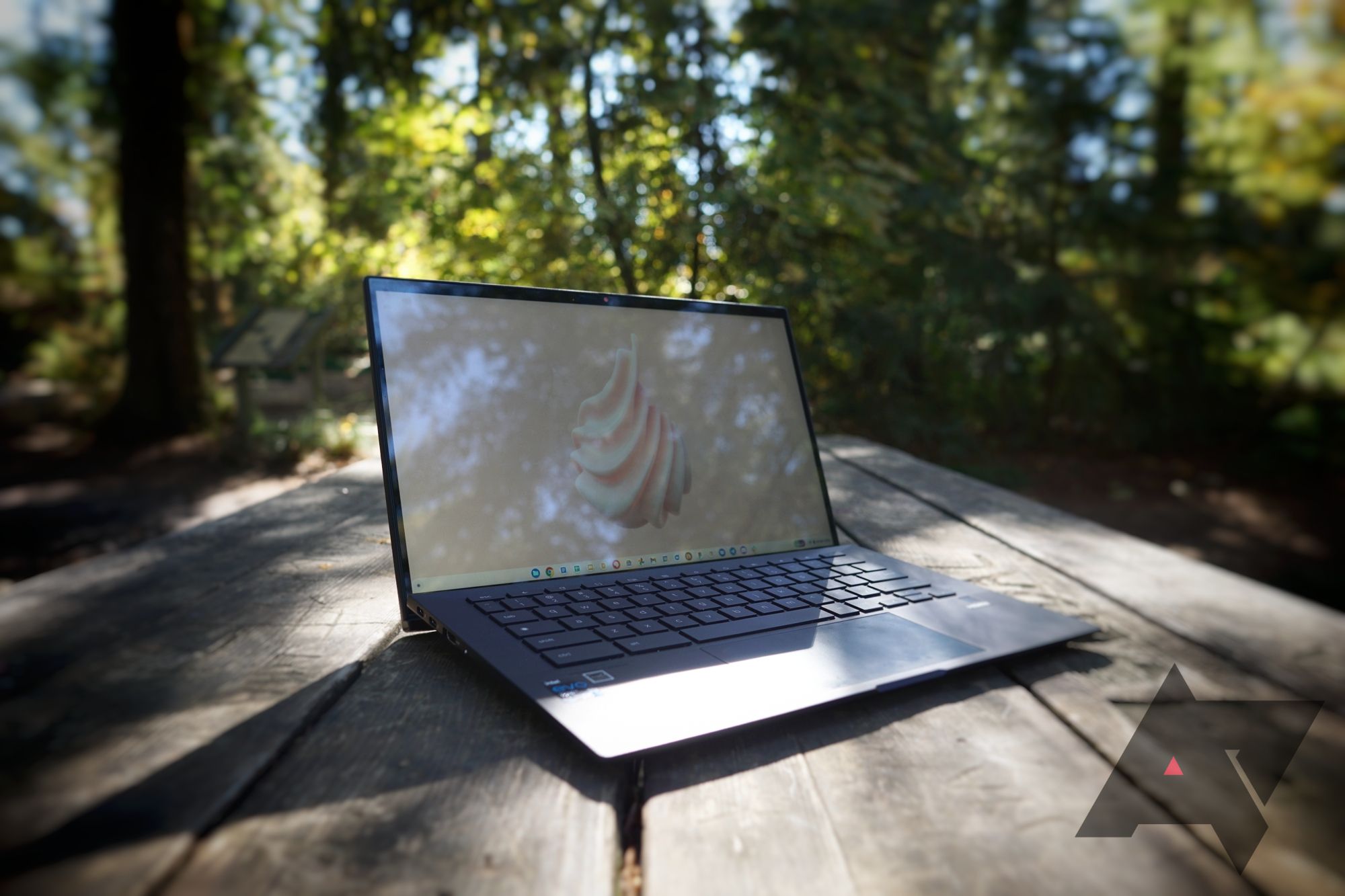Review sản phẩm
Google chuẩn bị cho Chromebook với công nghệ UWB
Giới thiệu Google’s getting ready for Chromebooks with UWB
Google đang chuẩn bị cho dòng sản phẩm Chromebooks bằng công nghệ UWB
Google đang chuẩn bị cho ra mắt Chromebooks với công nghệ UWB (Ultra-wideband). UWB đã trở thành xu hướng mới trong đánh giá và mua sắm sản phẩm tại Queen Mobile. Với công nghệ UWB, việc đánh giá sản phẩm trở nên dễ dàng hơn bao giờ hết. Khách hàng chỉ cần di chuyển quanh sản phẩm và ứng dụng sẽ tự động nhận biết và hiển thị thông tin liên quan trên màn hình thiết bị của họ.
Hashtag: #QueenMobile #UWB #ĐánhGiáSảnPhẩm #MuaSắmDễDàng
Mua ngay sản phẩm tại Việt Nam:
QUEEN MOBILE chuyên cung cấp điện thoại Iphone, máy tính bảng Ipad, đồng hồ Smartwatch và các phụ kiện APPLE và các giải pháp điện tử và nhà thông minh. Queen Mobile rất hân hạnh được phục vụ quý khách….
_____________________________________________________
Mua #Điện_thoại #iphone #ipad #macbook #samsung #xiaomi #poco #oppo #snapdragon giá tốt, hãy ghé [𝑸𝑼𝑬𝑬𝑵 𝑴𝑶𝑩𝑰𝑳𝑬]
✿ 149 Hòa Bình, phường Hiệp Tân, quận Tân Phú, TP HCM
✿ 402B, Hai Bà Trưng, P Tân Định, Q 1, HCM
✿ 287 đường 3/2 P 10, Q 10, HCM
Hotline (miễn phí) 19003190
Thu cũ đổi mới
Rẻ hơn hoàn tiền
Góp 0%
Thời gian làm việc: 9h – 21h.
KẾT LUẬN
Google đang sắp sửa cho ra mắt Chromebooks với công nghệ UWB (Ultra-Wideband), một công nghệ không dây mới sử dụng tần số vô cực để truyền dữ liệu và tìm kiếm đồng thời. UWB cho phép truyền tải dữ liệu nhanh chóng và chính xác hơn so với các công nghệ không dây thông thường, mang đến trải nghiệm tốt hơn cho người dùng. Việc tích hợp công nghệ UWB vào Chromebooks của Google sẽ làm tăng tính hấp dẫn của sản phẩm này đối với người mua, đồng thời tạo ra một sự cạnh tranh mới trên thị trường laptop.

Summary
Ultra-wideband (UWB) promises big things in the world of short-range connectivity: Bluetooth-like functionality, but with the bandwidth to stream video; zero lag couch co-op laptop gaming, and classroom computers that can screenshare without Wi-Fi. But for as much potential as UWB offers, though, it has yet to see widespread implementation. Perhaps we’ll soon be seeing it come to new devices types, though, as Google Chrome source code shows devs at work preparing Chromebooks to support the protocol.
Chromium Gerrit code commits dating back to late July reveal work towards implementing UWB support (via Chrome Unboxed). These entries refer to ongoing efforts to standardize how Chromebooks can communicate with each other via UWB, with UWB-enabled phones, and in groups of more than two devices.
UWB is something we’re hoping to see increasingly complement existing wireless protocols like Bluetooth and Wi-Fi, and this one is uniquely suited to certain applications. It can run on relatively little power, but is capable of substantially more accurate device location than either Bluetooth or Wi-Fi. While it can also operate reliably through more signal interference than these competing protocols, and has the capacity for fast data transfers, the high frequencies it operates on tend to seriously limit range.
Given these characteristics, UWB has the potential to thrive in smart home, retail, and smart auto scenarios: think about solutions like proximity-activated door locks, in-store navigation, contactless payments, self-starting cars, and more. Ford and BMW have introduced limited UWB functionality to control stuff like your car’s lights, doors, and various vehicle settings from your Android phone. Retailers are also exploring what it can do for them in stores, with tech companies like Noccela, Simpello and Redlore all offering solutions.
Ever since about 2020, we’ve been seeing device manufacturers shine more and more of a spotlight on UWB technology. Samsung got things going with UWB on select S21 series models, and also introduced the Galaxy Tag for tracking down household items. Apple, meanwhile has its own Airtag, plus UWB-enabled phones and watches. Google’s even got it on its latest generations of phones and may put it on the Pixel Watch 2.
Short-range wireless tech and smart home devices are inherently social, but without anything to connect to it, even the most advanced device may as well be operating offline. That’s what makes the prospect of UWB on a Chromebook exciting. This kind of hardware is affordable enough to become ubiquitous, helping to spread UWB to more households than ever before.
Xem chi tiết và đăng kýXem chi tiết và đăng ký
Khám phá thêm từ Phụ Kiện Đỉnh
Đăng ký để nhận các bài đăng mới nhất được gửi đến email của bạn.





